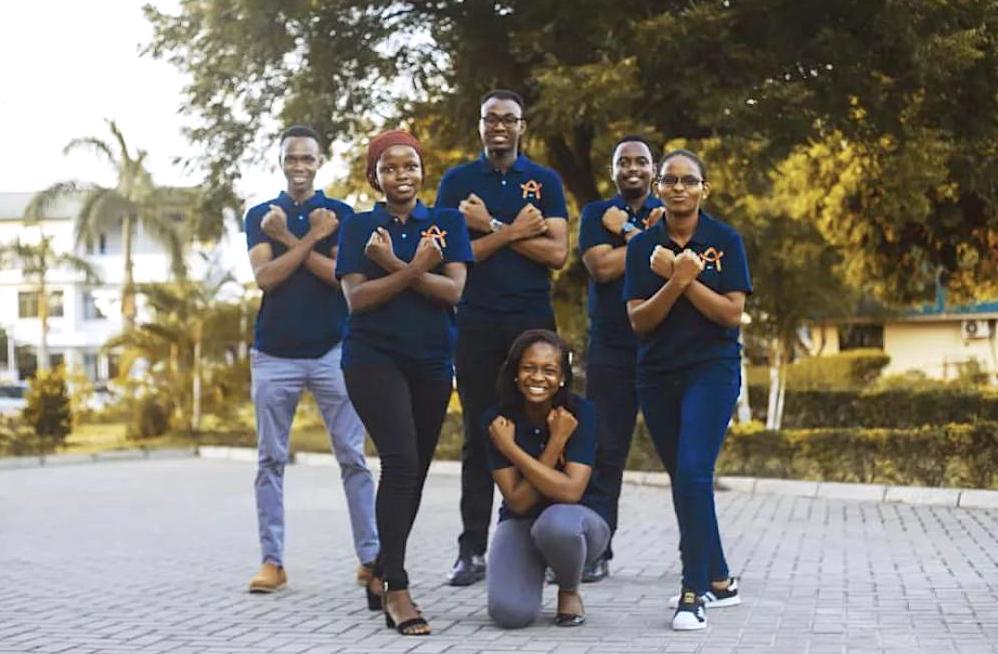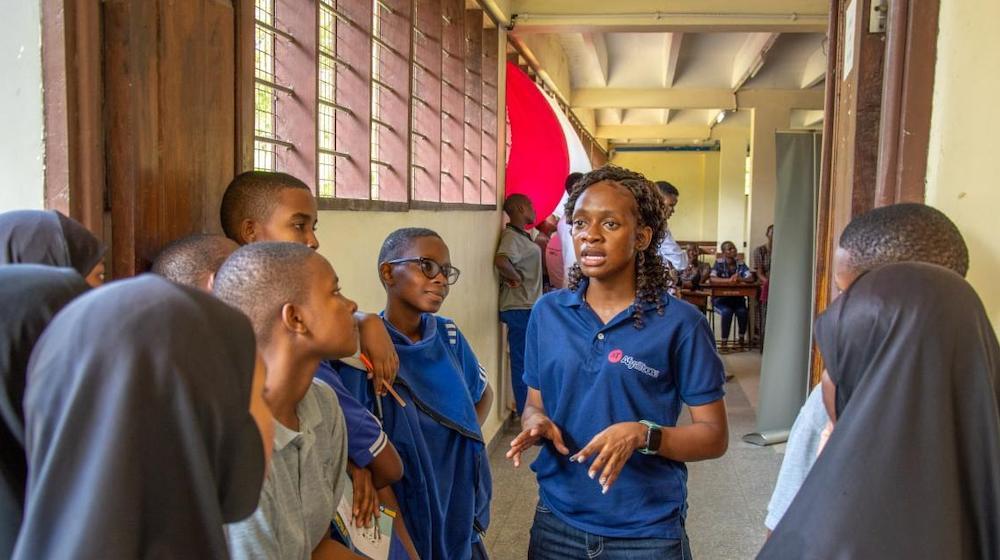Glory Charles Mlagwa, 25, is a medical expert and public health specialist. She is the winner of the 2022 Spotlight Initiative-supported FGM (female genital mutilation) Hackathon, which invests in new ideas and technology to end FGM. This is her story of what motivated her to take up the cudgel against FGM.
DAR ES SALAAM, Tanzania – As a young girl growing up in a typical African family, I was afraid to have a conversation with my elders and parents concerning my sexual and reproductive health. Luckily for me, my mother initiated the conversation and gave me the opportunity to make decisions concerning my welfare, with her guidance.
The same cannot be said for the majority of young people, particularly girls in Tanzania and Africa at large. I grew up in northern Tanzania and had Maasai friends, although I am from a different tribe. Among other cultural practices in their tribe was a ritual to mark the transition from girlhood to womanhood, that of female genital mutilation [FGM].
Seeing my friends, their young sisters, and eventually their daughters, living in fear [of FGM] is something that I cannot accept. I want to make a change, be their voice and share their stories and experiences without making them relive the awful experience.

To end these harmful practices, we must be able to have conversations with the community and unite in our efforts. This is why I decided to join hands in the push to end FGM by 2030.
I learned of the FGM HackLab in August last year and participated in the pitch event, which brought together six finalists from various African countries to present our innovative solutions to end FGM. The experience has helped us understand the existing causes of FGM and efforts to mitigate this harmful practice. We have been able to understand what has been done so far around the continent and what can we do to strengthen efforts.
Our winning project, Afyatoon, uses animation to make health education accessible, especially to youth. Content on FGM is co-created with the target group and the stories are created and tested on the community. Content is age-specific, targeting youth and change-makers, and it is appealing and attractive, to keep the discussion from seeming scary or intimidating. We use widespread internet coverage to reach areas where community education on FGM is low.
The project has been piloted and tested on social media, where each individual animation has reached around 3000 people. Some animations have been broadcast on Hope TV and comics have been printed in the Mwananchi newspaper. These milestones have been achieved in partnership with fellow youth-based organizations and companies, such as Mobile Afya, the government and media outlets.
As African innovators, we have so much to offer, if given the chance to showcase our abilities.
But we won't stop there. The seed funding [from this win] will help us to establish an animation studio as a base for production, and to increase community engagement and outreach.
We believe that innovative solutions are the next-generation efforts needed to end harmful practices. Youth are the hope for the future, and for bringing positive change. As African innovators, we have so much to offer, if we are given the chance to showcase our abilities. Join me in supporting this innovative approach to bring an end to FGM, to create a brighter future for all.
Background on FGM InnoHack
UNFPA, the United Nations sexual and reproductive health agency, with funding and support from the UNFPA-UNICEF Joint Programme on the Elimination of FGM and the Spotlight Initiative Africa Regional Programme, initiated an FGM innovation project that is engaging young people to find innovative solutions to ending FGM and harmful practices across Africa. In 2021, the project identified over 100 innovative solutions, providing up to $70,000 in seed funding and six months of business incubation support to scale up four winning solutions into viable products. More than a million young people were engaged with information on FGM innovation.
Building on the lessons from the 2021 HackLab, the 2022 FGM HackLabs explored direct engagement with community, youth and women-led innovation incubation hubs. The HackLab engaged over 80 innovation hubs across Africa through the application process, reaching over 300 innovators working to progress bodily autonomy, especially on FGM.
Over two years, the project has identified and provided financial and technical business support to innovators from Uganda, Kenya, Tanzania, Nigeria and Burkina Faso.


